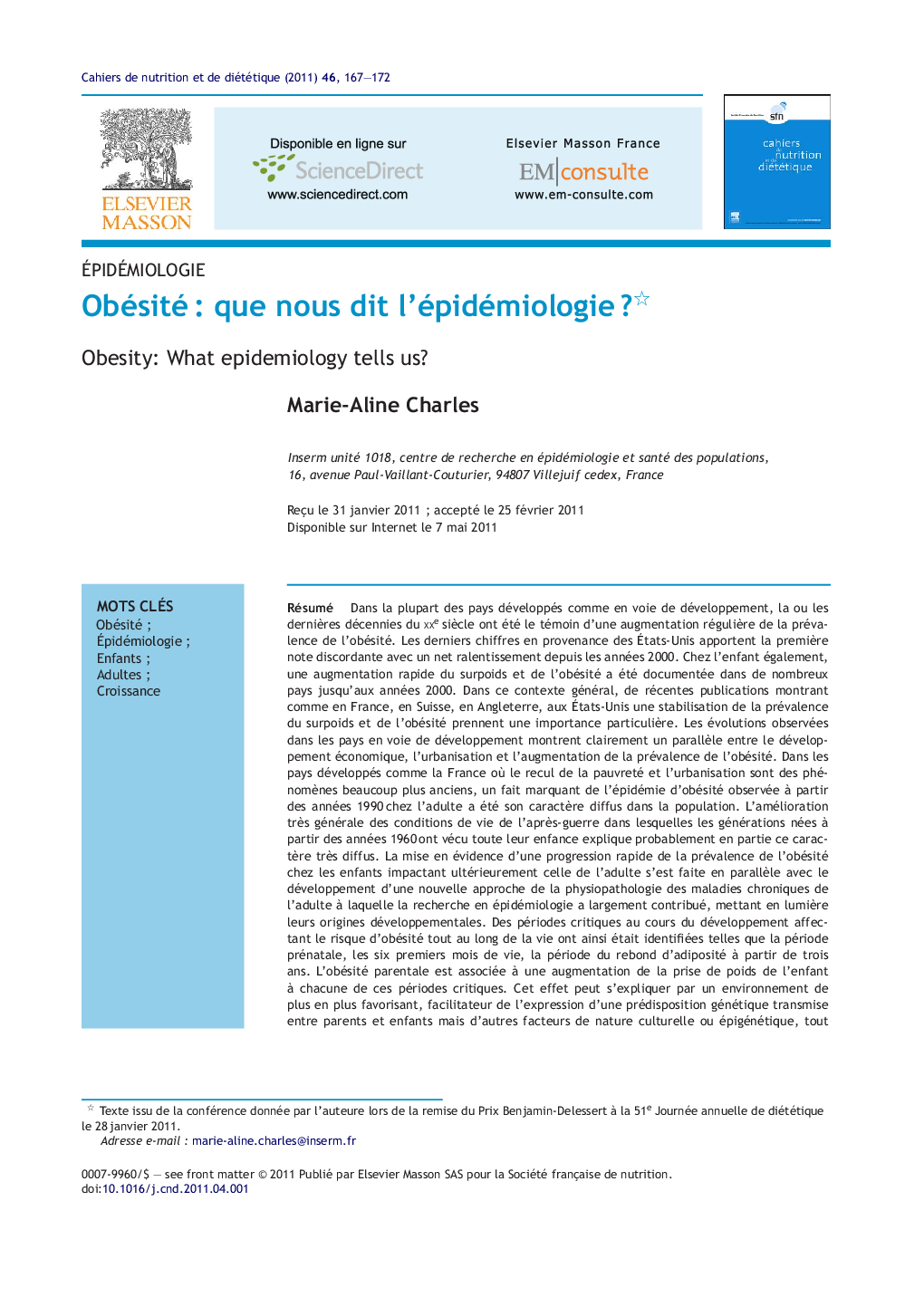| کد مقاله | کد نشریه | سال انتشار | مقاله انگلیسی | نسخه تمام متن |
|---|---|---|---|---|
| 2679172 | 1142169 | 2011 | 6 صفحه PDF | دانلود رایگان |
عنوان انگلیسی مقاله ISI
Obésité : que nous dit l'épidémiologie ?
دانلود مقاله + سفارش ترجمه
دانلود مقاله ISI انگلیسی
رایگان برای ایرانیان
کلمات کلیدی
موضوعات مرتبط
علوم پزشکی و سلامت
پزشکی و دندانپزشکی
غدد درون ریز، دیابت و متابولیسم
پیش نمایش صفحه اول مقاله

چکیده انگلیسی
In most developed and developing countries, a regular increase of the prevalence of obesity has been documented during the last decade(s) of the xxth century. The last figure from the USA is for the first time discordant with this general trend by showing a clear slowing down since year 2000. In children likewise, a rapid increase in the prevalence of obesity took place in the second half of the xxth century but recent publications from France, Switzerland, UK, USA also report a stabilization of childhood overweight and obesity prevalences. The experience of developing countries clearly shows the impact of socioeconomic status improvement and urbanization on the prevalence of obesity. In developed countries like France, a striking element was the diffuse nature of the adult obesity epidemic observed from the 1990s. The general improvement of living conditions after the Second World War probably explains the diffuse nature of the epidemics. Specifically, the changes in the nutritional status of children that happened at that time have long lasting consequences for adult obesity epidemics. Indeed, a new current in epidemiology, lifecourse epidemiology, has prompted over the past decade a new approach of the pathophysiology of chronic diseases, including obesity. Lifecourse epidemiology considers factors affecting the susceptibility to diseases over the whole life with critical periods during developmental phases. Critical periods for the susceptibility to obesity have been documented in prenatal life, during the first 6Â months of postnatal life and from 3Â years on starting at the time of the adiposity rebound. Parental obesity is involved at each of the critical periods. The transgenerational transmission of obesity is explained by genetic factors, shared lifestyle but also epigenetics especially during the early developmental periods. The slowing down of the childhood obesity epidemics observed in several developed countries may signal that factors affecting the early susceptibility to obesity have recently changed.
ناشر
Database: Elsevier - ScienceDirect (ساینس دایرکت)
Journal: Cahiers de Nutrition et de Diététique - Volume 46, Issue 4, September 2011, Pages 167-172
Journal: Cahiers de Nutrition et de Diététique - Volume 46, Issue 4, September 2011, Pages 167-172
نویسندگان
Marie-Aline Charles,